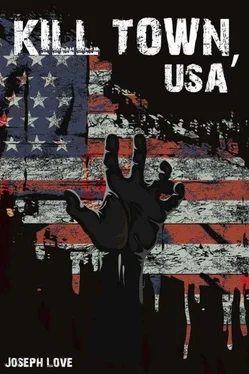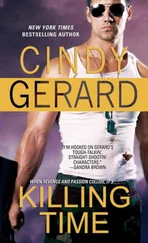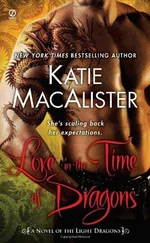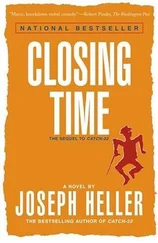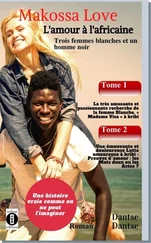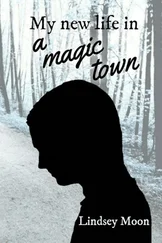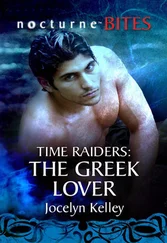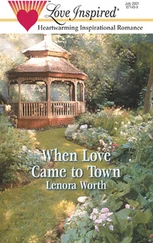I picked up the Winchester, wiped its stock clean of blood and broken glass.
Click. Slide. Click.
Audrey climbed out the rear window, I watched as she quickly jimmied open Alfie’s service door and slipped inside, leaving the door ajar.
I couldn’t see for the cracked windshield. I sank in the seat, braced my feet against the glass, and pushed—I felt the bullets as the muscles flexed around them. The broken sheet of glass flopped onto the hood and I propped the Winchester on the dash.
The undead filled Back Street, they oozed out of windows and doorways. The gunfire was nearly drowned out by the sirens.
The truck lurched forward and I accidentally fired the Winchester. It rattled the dash and scattered the broken glass to the floor. I could hardly steer the truck and load the rifle with the same hand. I had the wrong foot working the brake and gas. I drove onto the sidewalk, clipping newsstands and a large wood planter.
I turned onto Main Street and drove into the flood of white hot light. The Emergency Plan. Main Street was awash in blood, bodies, the detritus of slaughter. Only a few stragglers remained under awnings and alleyways, protected by darkness. One crawled up the sidewalk, barely inching along, his lower body shorn from his torso. Three feet of intestines dragged behind.
I scanned the roofline and street for guards, but they were gone. Rifles barked—the guards were some where. They were distracted by the shamblers.
School buses. When the Rapture comes, we’ll ride to Hell in school buses.
As I turned onto Bridge Avenue, the road was blocked with six buses parked three-deep, nose to tail. Dirt and sand was piled up to the windows. A levee for the roaming dead. I parked the truck against a dirt mound and opened the door. Bitterly, I decided to leave everything except the Winchester.
I hiked around the fronts of the buses, across the tracks, and when I got to the bridge railing I felt the hot dread rush to my face. The heathens had funneled onto the bridge. Thousands of them packed from bus to hillside. Grunting and hissing and scratching at the yellow buses.
Was I doing or enduring?
I shook the thought from my head.
I was surviving.
I scrambled down the embankment to the soggy rocks and sandy mud and mossy pylons. There were three men trapped in the concrete cave, scratching their way up the slope. They’d be there forever. My leg jarred as I slid down the frozen rocks. I landed half in the water, my leg quickly numb from the rushing cold. But the pain didn’t go away. It rose up my throat and I heaved on the rocks. The sharp, wrenching pain crept up my spine and engulfed my chest. I couldn’t breathe.
I looked upstream. The water crested over rocks and turned white. The waves looked like razor blades and the cold air cut through me. I could see the shoals across the river. It was so far. I sat up on the rocks and stared at the shoals.
Sometimes, survival looks a lot like suicide. With my feet an inch from the water, I closed my eyes and slid completely in the river. The icy water crept into my hot wounds and dulled them. I clawed angrily at the water with my good arm, kicking and holding my breath to stay afloat.
Halfway across the river and far downstream from the bridge, my hand scraped some pebbles and I stopped floating. I quickly planted my feet and stood. I braced myself against the water, but I was weak. I shivered. My muscles were locked. It was the wrong shallows. It was not respite. I fell back in the water. My muscles were too cold and slow. My head dipped below the water. I thrashed to the surface and gulped the air. The water came over my head again. I felt the rocks at the bottom of the river but I couldn’t stand. I reached for the air but it was gone. Replaced by water, forever deep and frigid.
As I reached, a thick blade swiped my knuckles. I followed it with the current. It struck again and I grabbed for it. It dragged me upward. I grabbed for the surface and found the weightless air. I pulled my way up the blade, up a thin, cold shaft. It was a paddle.
“Audrey!” My face broke the surface. I sucked in air and water.
“Jack?” Her voice was nearly lost under the roaring water. I gripped the paddle tighter and she pulled me to the side of the boat. I shut my eyes and clung to the boat. She guided us into the reeds along the dark bank. My feet sank in the silt, and when I found the tree roots I climbed up and threw myself onto the soggy, sandy ground.
Audrey pulled the canoe to shore and swiped me with the paddle.
“You have to get in the boat.”
I did not put myself in the canoe. Something lifted me up, wrapped me in blankets and sleep sacks, and carried me to the cool, riveted floor. I fell asleep when Audrey told me not to, and I remember not wanting to ever wake up. There was a deep, aching pain inside, not from bullets or exhaustion or any worldly thing. I don’t know what that pain was, but it made me close my eyes and hide from the world.
When I woke, there was bright, endless sunshine. The canoe bobbed leisurely in the water. My head spun. I reached for the Winchester but it was gone. I remembered the river, the forever cold that had seeped into my bones. I figured the gun must be somewhere in the river. I raised my head and the barbed wire in my veins vibrated from my ankle to my shoulder. My head fell back to the cold boat floor. There was a new pack, smaller than the last, stuffed to the brim. The Remington was carefully placed underneath it. It was still bitter cold, I felt it on my face, but my clothes were dry and warm. My hands were wrapped in soft, thick gloves. My right arm was in a sling and my leg was numb.
“Last night,” I said, my voice hoarse, I strained and turned to face Audrey, but there was just an empty seat.
In spite of the pain, I picked myself up and looked all around the canoe, the river. Audrey was gone. I sat in the middle of a wide, lazy section of river. The canoe was cocked sideways, drifting with the cold wind.
For a while, I had been afraid of the walking corpses—Heathens as many of us called them. But I fought them face-to-face and saw there was nothing to them. At that point, what terrified me was to be alone. Not alone in the land of Revelation, not alone in wandering the trackless waste, but to be without Audrey. For a brief moment she had been with me, and I deeply enjoyed and missed it. I noticed a piece of paper tied to the new pack. I reached forward and snapped it off the string.
Mostly, it was blank like the flat waters and the feeling in my leg. But Audrey had signed it, and just under the signature she wrote, “I love you.” I said it aloud to hear the words. It was the first time I’d said them as an adult. It was the first time anyone had ever told me. It was the best thing she could have given me.
